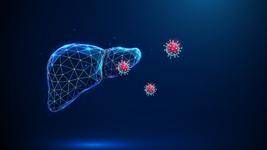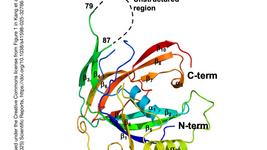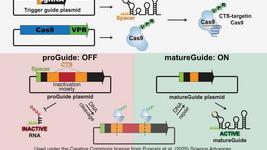CrisprAIE: Enhancing CRISPR Diagnostics with Aggregation-Induced Emission Technology
In an article published recently in Nature Communications, researchers at various institutes in China present a new CRISPR-mediated nucleic acid detection method called CrisprAIE.
Recognising the drawbacks that can arise with other CRISPR-based diagnostic methods, which may include low signal transduction efficiency, poor sensitivity and poor stability, the team sought to develop a new method that combines CRISPR-Cas reactions with aggregation-induced emission luminogens (AIEgens). CrisprAIE uses AIEgen-incorporated double-stranded DNA with quencher groups (Q-dsDNA/AIEgens-Q) as reporters.
They found that CrisprAIE demonstrates improved performance in the clinical detection of norovirus and SARS-CoV-2 with or without amplification. They also report that the diagnostic potential of CrisprAIE is augmented by integrating it with spherical nucleic acid-modified AIEgens (SNA/AIEgens) and a portable cellphone-based readout device.
Compared to conventional CRISPR-based diagnostics, the team reports CrisprAIE exhibits approximately 80- and 270-fold improvements in sensitivity, depending on the quencher group used, compared to conventional CRISPR-based diagnostics. They propose that CrisprAIE can be readily adapted as a universal signal generation strategy to significantly improve the detection efficiency of most CRISPR-based diagnostics.
Read the full article in Nature Communications here.
Tags
CLINICAL TRIALS
Sponsors:
Base Therapeutics (Shanghai) Co., Ltd.
Sponsors:
Base Therapeutics (Shanghai) Co., Ltd.







